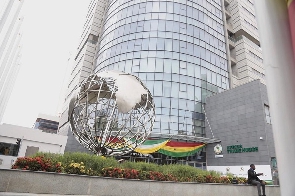 The regional conference is to encourage stakeholders in industry to take advantage of the AfCFTA
The regional conference is to encourage stakeholders in industry to take advantage of the AfCFTA
A Regional conference organized to elaborate more on business opportunities provided by the African Continental Free Trade Area (AfCFTA) and the National Export Development Strategy (NEDS) has been held in Kumasi.
It is the first in a series of regional events being organized jointly by the Ministry of Trade and Industry, the Ghana Export Promotion Authority (GEPA) and the National AfCFTA Coordination Office.
The conference, which was held on the theme "Empowering Ghanaian businesses to harness the benefits of the AfCFTA under the framework of NEDS", targeted public and private businesses within the Ashanti Region.
Dr Afua Asabea Asare, Chief Executive Officer of GEPA, said the regional conference was to encourage stakeholders in the industry to take advantage of the AfCFTA to participate.
She explained that Ghana had over the past decades, enhanced its stature in international trade, recording substantial expansion in total exports, adding that it was due to joint efforts by the government and the Ghanaian private sector.
Dr. Asare however, indicated that the relatively weak performance of the Non-Traditional Exports (NTEs) sector in recent years, and other externalities in the international trading environment have revealed risks, weaknesses and uncertainties associated with over dependence on primary commodity exports and limited product diversification and value addition.
She said this was why President Akufo-Addo wanted a complete paradigm shift from the export of raw materials to value addition of the country’s products.
Dr Asare said the government had embarked on an aggressive industrialization agenda which saw the establishment of several manufacturing companies under Government’s flagship 1D1F programme.
The CEO said GEPA was spearheading the formulation of a new National Export Development Strategy, which was aligned to the government’s industrialization agenda, to help promote rapid increase in non-traditional exports in the next ten years.
The Strategy, according to her, envisaged that NTEs would grow from $2.8 billion in 2020 to $25.3 billion in 2029.
Mr Robert Ahomka-Lindsay, Deputy Minister for Trade and Industry, indicated that the AfCFTA which was meant to build wealth within African countries also marked a key milestone in the government's efforts to industrialize the country.
He projected that if all the 54-member African countries executed the AfCFTA, which started in January 2021, there was going to be a 52 per cent increase in intra-African trade by year 2022.